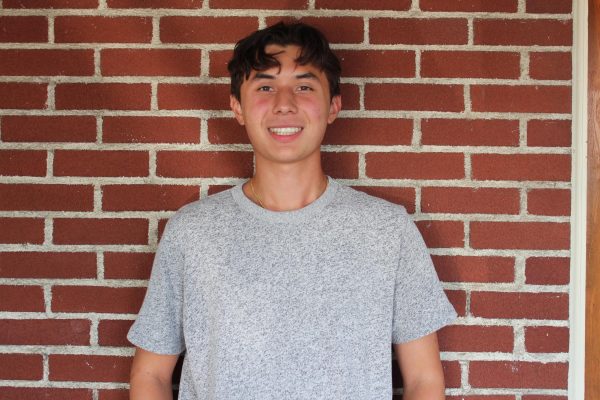Devoted fans of my articles will know that I love HBO’s “The Last of Us.” It’s a post-apocalyptic drama series based on the PlayStation video game and also one of my favorite TV shows I’ve ever seen. Last year, I watched season one and was absolutely floored by the show’s combination of horror, action and humanity. Naturally, I was so excited when season two premiered on April 13.
The series follows Joel and Ellie as they navigate a world ravaged by a Cordyceps disease. Joel is a hardened middle-aged man reeling from the loss of his daughter, while Ellie is a teenage girl navigating adolescence. Over the course of season one, the two of them forge a father-daughter relationship with many highs, lows and Infected along the way. While the second season only has two episodes so far, it’s so good that I feel the need to talk about it right now. If you haven’t seen “The Last of Us,” this article will contain major spoilers for the series, so you have been warned. Just know that I highly recommend this series.
Season two picks up right where season one left off, after Joel’s decision to “save” Ellie. At the end of season one, Joel successfully transports Ellie to the Fireflies, and they attempt to use Ellie’s immunity to the Cordyceps disease to make a cure. But when Joel learns that they have to kill Ellie to do this, he murders everyone in the hospital to save her.
In season two, we meet Abby, played excellently by Kaitlyn Dever, whose father died in this massacre. In the opening scene, Abby kneels by her father’s grave and vows to kill Joel slowly. This opening promise sets up a plot thread that episode two brutally closes out.
But before we get ahead of ourselves, Joel and Ellie’s dynamic is different this season. After a five-year time jump, our two main characters find themselves in Jackson, Wyo., living in the same community as Joel’s brother, Tommy. We don’t know why, but Ellie has some grudge against Joel. Perhaps it’s just a typical teenage girl being mad at her parents for no reason, or perhaps it’s because Ellie feels that she doesn’t need Joel’s protection anymore. Probably both.
We might not ever know why because Abby murders Joel in episode two.
After Abby and her crew get caught in a snowstorm near Jackson, Joel saves her and leads her back to her team, unwittingly walking into his own death. It’s the most brutal scene of the series so far, and I was shocked that it came so early in the season. For as complicated as she is, Abby delivers on her promise to kill Joel slowly; she shoots him in the leg with a shotgun and bludgeons him to death with a golf club. It’s even worse that Ellie tracks them down and has to watch him die as well.
For as brutal as this scene is, it’s a great reminder of how much I care about these characters. While watching Joel die, it felt like I was losing someone that I knew personally. Even through all of his moral ambiguity, Pedro Pascal plays Joel in a way that made me care about him through all of it. On top of that, Bella Ramsey plays Ellie excellently. Their painful screams and incredible acting broke my heart and even made me cry while watching the scene.
While such a devastating blow this early in the season might make some viewers not want to watch the show anymore, it makes me intrigued. I’ll miss Pedro Pascal as Joel, but I have full confidence that Bella Ramsey can carry the show on their shoulders. Writing-wise, there are also many different avenues to explore now. Both Ellie and Abby are direct parallels of each other. Both are strong-willed yet impulsive characters who have lost fathers in their lives. Abby, through her revenge, has now cast Ellie into the role that she was once in, creating a perpetual loop of revenge. How will all of this play out? How will Joel’s death affect Ellie?
Of course, if you’ve played the game, then you already know these answers, and I envy you.
To end, I’ll quote Pedro Pascal on Joel’s death to comfort those who need it: “I have nothing but respect for the level of investment that people have in a video game or a TV show or movie or book. I experience that myself. I’ve flung books across the room because its impact is so profound on me and experiencing the story. I think it is incredibly painful for people, and that’s obviously a brilliant achievement of the storytelling.”



















